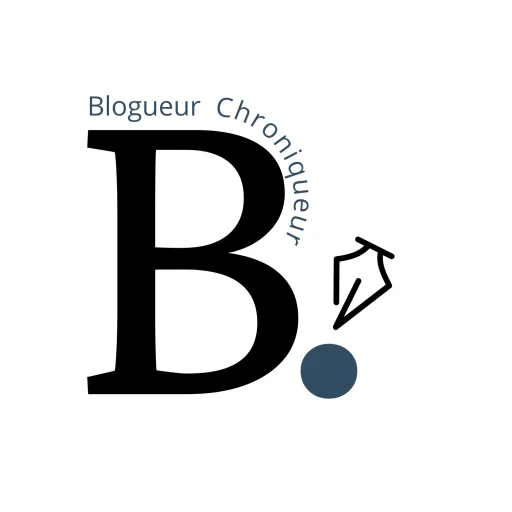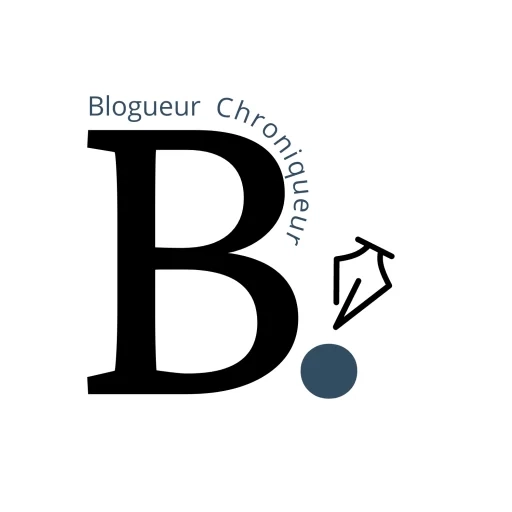After seven years’ restoration work, Staatsoper reopened its historic building on Unter den Linden on 3 October 2017. The reopening of the Staatsoper will be followed by a series of further construction projects in the coming years that will further expand the cultural offerings around Museum Island and the government district.

Berlin’s new cultural heart
Cultural stronghold and historical centre
Today, Berlin belongs to one of Europe’s leading centres of culture – and its heart beats strongest directly in the old historical city. For centuries, Berlin’s city centre has been home to a unique concentration of outstanding cultural institutions constructed on the ground where the medieval city of Berlin was founded.
The modern Mitte district does not just boast the UNESCO World Heritage Site of the Museum Island, but also two opera houses and six major theatres, as well as museums, innumerable galleries and arts venues. Now, this cultural ensemble is gaining a new dimension with many new major cultural projects located here, just a few minutes’ walk apart. You can find an overview of the main on-going and planned landmark projects below.
Pierre Boulez Saal
Opened in March 2017, the new Pierre Boulez Saal is a major international concert hall. Initiated by Daniel Barenboim, General Music Director of the Staatsoper Unter den Linden, the hall was developed by American architect Frank Gehry and with globally acclaimed acoustician Yasuhisa Toyota creating the impeccable acoustics. Lined with light Canadian cedarwood, the Pierre-Boulez-Saal offers a flexible design allowing the auditorium’s seating as well as the stage to be arranged in various constellations for a wide spectrum of events. The concert hall is also the public face of the Barenboim-Said Akademie, not only serving as its home venue but also a space where young musicians from conflict zones in the Middle East can practice under the guidance of their mentors. The elliptically-shaped hall regularly presents concerts and chamber music, with a range of works from contemporary composers to the classic Romantic repertoire. In addition, the Pierre-Boulez-Saal will provide a venue for lectures and conferences.
Staatsoper Unter den Linden
The Staatsoper Unter den Linden, Berlin’s first opera house, is the city’s most important heritage theatre building. Designed by architect Georg Wenzeslaus von Knobelsdorff and built from 1741 to 1743, this neo-classical structure was Germany’s first free-standing opera house and, at the time, the largest in Europe. In a seven-year programme concluding in 2017, the Staatsoper has now been extensively renovated and refurbished.
Aside from installing completely new stage equipment, the aim was to add one second to the auditorium’s reverberation time – at the express wish of Daniel Barenboim, General Music Director of the Staatsoper Unter den Linden. To make this wish a reality, the ceiling of the auditorium was raised significantly to create space for a ‘reverberation gallery’. The reopening of the Staatsoper Unter den Linden is celebrated on 3 October 2017 with a performance of Robert Schumann’s Scenes from Goethe’s Faust staged by Jürgen Flimm and conducted by Daniel Barenboim.
The regular programme including premières, new productions and classic revivals is launched on 7 December 2017, the 275th anniversary of the opening of the opera house. The highlights of the new season back in the traditional Staatsoper opera house include the premiere of Wagner’s Tristan und Isolde on 11 February 2018 in a production conducted by Daniel Barenboim and directed by Dimitri Tcherniakov.
Daniel Barenboim will also be conducting another of the season’s highlights when the premiere of Harry Kupfer’s staging of Verdi’s Macbeth is performed on 17 June 2018. The refurbished Staatsoper Unter den Linden not only boasts world-class acoustics, but in terms of stage technologies is also one of the world’s leading opera houses.Now the refurbished Staatsoper Unter den Linden not only boasts world-class acoustics, but in terms of stage technologies alone is one of the world’s leading opera houses.
Temporary Pergamon Altar exhibition and the 360-degree Pergamon Panorama by Asisi
With the Pergamon Museum restoration programme ongoing, the impressive Pergamon Altar is closed for visitors until 2019. Constructed specially to house the Altar, the Pergamon Museum is Berlin’s most popular museum, attracting over one million visitors a year.
The restoration work for the entire project, which began in 2013, is presently scheduled for completion in 2025–2026. The rooms in the southern wing of the museum, with the Ishtar Gate and Processional Way, the Roman Market Gate of Miletus, and the Museum of Islamic Art, continue to remain open.
From 2019, visitors can view part of the Pergamon Altar’s treasures at a temporary exhibition building directly opposite Museum Island. The exhibits are to include sculptural elements such as, for example, the Telephos frieze and statues in honour of kings and queens, and as well as some sculptural works from the roof of the altar.
Visitors can also enjoy a virtual 3D tour of the Altar based on the latest scholarly research, as well as a newly created fascinating 360-degree panorama by artist Yadegar Asisi. In cooperation with the Staatliche Museen zu Berlin, Asisi’s 360-degree panorama shows the ancient city of Pergamon in around 129 BCE, with its classical architecture inspired by Athens and the famous altar embedded in the terraces of the town’s Acropolis.
The temporary exhibition building will remain open until the Pergamon Altar’s restoration is completed in 2023.
Deutsche Bank Kunsthalle
The Deutsche Bank Kunsthalle gallery space is now moving from its location at the corner of Unter den Linden and Charlottenstrasse to the eighteenth-century Prinzessinnenpalais, just a few steps away. With three times the present exhibition space, this new venue in Berlin’s city centre is to become a major Forum for Art and Culture.
Scheduled to open in mid-2018, this prime location covering 900 sq. metres not only has space to showcase three to four temporary exhibitions, but also to present the Deutsche Bank’s collection totalling 50,000 works.
Plans are already underway for cooperations with various museums in the city and private collections as well as the Deutsche Bank’s partners in the cultural sector (the Berlin Philharmonic Orchestra, the Deutsche Sporthilfe, the Deutscher Buchpreis, and Villa Romana).
In addition, the Forum will not only present a range of cultural events, including concerts and readings, but also host discussion formats, workshops, and sports-related events.
James-Simon-Galerie
The James-Simon-Galerie, designed by British architect David Chipperfield, forms the Museum Island’s new central entrance and visitor centre. Named after James Simon (1851– 1932), one of the leading patrons of what is today the Staatliche Museen zu Berlin (National Museums in Berlin), the new visitor centre and entrance is constructed on a site which, well into the 1930s, was home to Berlin’s Central Customs Office.
Scheduled to open in late 2019, the impressive James-Simon-Galerie will house the central ticket office for all five museums on the Museum Island, as well as cloakrooms and facilities, cafés and a museum shop. In addition, there will be dedicated rooms for special exhibitions and a lecture hall. In its function as a central entrance, the James-Simon-Galerie is also the starting point of the planned Archäologische Promenade (Archaeological Promenade) leading to the separate museums.
The design is also envisaged as providing a public meeting point in Berlin’s historical centre.
Humboldt Forum
The Humboldt Forum in the Berlin Palace, now reconstructed and originally home to the Prussian Hohenzollern rulers, creates a new cultural and museum district in the heart of the city. Inspired by Alexander von Humboldt’s universal idea, the Humboldt Forum forges a link between art, culture and science and provides a venue for a dialogue of world cultures.
In future, the Humboldt Forum will house the Prussian Cultural Heritage Foundation (SPK) museums of ethnology, Asian art and non-European cultures previously located in the Dahlem Museum Centre. The first floor of the Humboldt Forum is to show a Berlin exhibition, coproduced by Kulturprojekte Berlin and the Stadtmuseum Berlin Foundation, exploring the exchange between Berlin and the world. In the run-up to the Humboldt Forum opening, exhibitions are already being presented in the Humboldt Box and on the Museum Island.
House of One
The House of One is a planned interfaith centre and place of worship at Petriplatz square for followers of three major monotheistic world religions – Judaism, Christianity, and Islam. This remarkable structure, financed by crowdfunding, is being designed by the Berlin architectural office Kühn Malvezzi.
The House of One is to be built on the foundations of the churches at Petriplatz square, not just at the heart of the city on an island in the River Spree, but also the founding site of the medieval city of Berlin-Cölln. Scheduled to open in 2019, the House of One is a globally unique project, aiming to create a place for encounters where the coexistence of religions is lived peacefully.
Monument to Freedom and Unity
The National Monument to Freedom and Unity is planned to commemorate the Peaceful Revolution and German reunification in the years between 1989 and 1999. The competition for the monument was won by Milla & Partner in Stuttgart with a design created in cooperation with choreographer Sasha Waltz.
Their aesthetically ambitious structure envisages a bowl-shaped platform, a social sculpture that visitors can not only stand on, but actually set in motion by acting together as a group. The Monument is scheduled to be opened in 2019 to mark the 30th anniversary celebrations of the fall of the Berlin Wall. The site has already been chosen – on the Schloßfreiheit square at the Berlin Palace, where the Monument will be constructed on the existing plinth of the former equestrian statue of the German Emperor Wilhelm I.
Bauakademie
Between 1832 and 1835, Karl Friedrich Schinkel, probably Berlin’s best-known architect, was commissioned to construct a Bauakademie to house a school of architecture to train master builders. Present plans now envisage rebuilding Schinkel’s original structure, which was torn down in 1962. As yet, though, no final decision has been taken on whether to carefully follow the historical plans or adapt them to create a more modern building.
The use of the building is also similarly open, with suggestions ranging from a museum of architecture to an architectural forum dedicated to sustainable building and urban planning. A competition launched in early September 2017 aims to promote a discussion of the concept and ideas for the project, and is scheduled to reach a decision by spring 2018.
Going forward, the plan is to hold an architectural competition from mid-2018, with the results ready to be presented in spring 2019.
Flussbad
The Flussbad project aims to establish a large river swimming pool along a stretch of water from the Humboldt Forum to the Bode Museum. The project includes an extensive water purification system and ecological plant filters, as well as sets of open steps leading to the water.
The result would be the Flussbad pool located in Berlin’s historic city centre where the Spree Canal runs past the Museum Island. Initiated by the non-profit Flussbad Berlin association, the project is supported by the Berlin Senate and the Federal Government.
With Berlin’s Mitte district developing into the showpiece for the inner city, the Flussbad river pool, scheduled to open in 2025, would provide an attractive, lively public urban space for everyone to enjoy in the heart of the city.
Alte Münze
Over the coming years, the Alte Münze complex at the Molkenmarkt square in Berlin’s Mitte district is to be developed into a location for the arts, culture and music. In particular, the Alte Münze is to provide an inner-city home for non-commercial art, a venue where the independent arts scene can work, perform and exchange ideas.
For the creative city of Berlin, it is not just a stroke of luck to have this spreading area of 15,000 sq. metres available in such a prime location, but also a marvellous opportunity. For around 70 years, the vast Alte Münze complex of buildings housed a coin mint – minting everything from the 1930s Reichsmark to the East German Mark, the Deutschmark and the Euro.
With an architectural history stretching back to the Nazi years, this complex tells its own unique story – and has been recognised as an industrial heritage site since the 1980s. After the German State Mint left the site in 2005 to 2006, the Spreewerkstätten creative community has run the Alte Münze as an interim venue for exhibitions, concert nights, parties and other cultural events.











